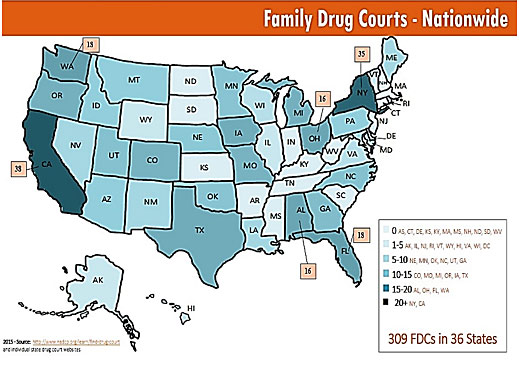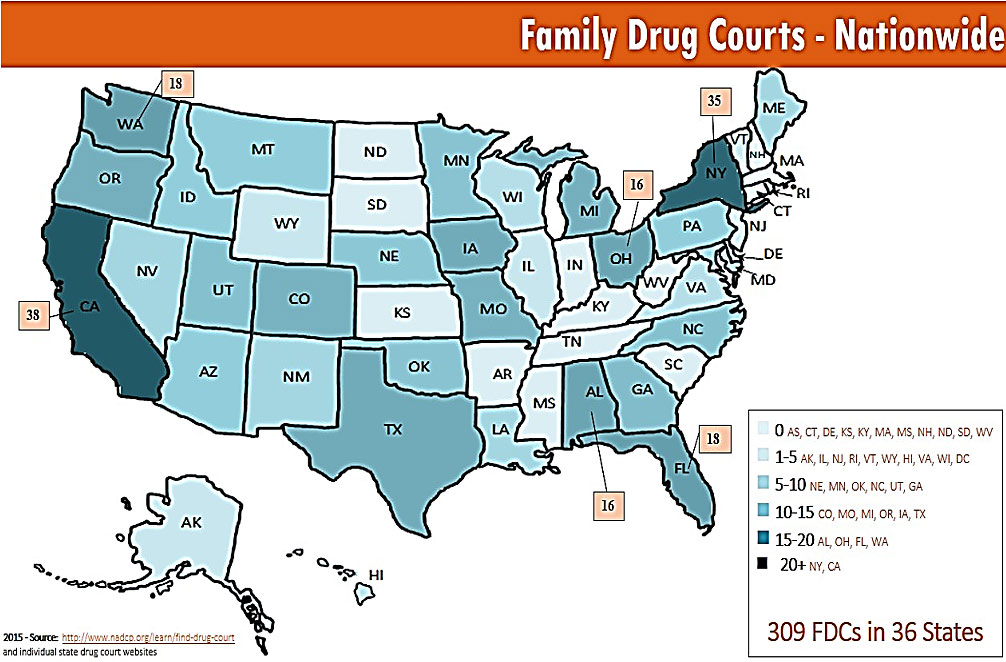
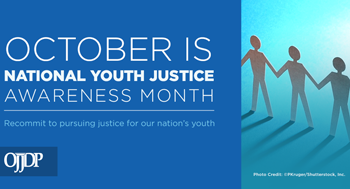 On September 30, 2015, President Barack Obama issued a proclamation designating October as National Youth Justice Awareness Month.
On September 30, 2015, President Barack Obama issued a proclamation designating October as National Youth Justice Awareness Month.
OJJDP applauds the President for highlighting the challenges—and the many opportunities for reform—in the area of juvenile justice. For more than four decades, OJJDP has worked with states, as well as tribal and local jurisdictions, to prevent delinquency, reduce recidivism, and improve outcomes for youth, families, and communities. Although there has been significant progress, much work remains to be done.
Each year, more than 1 million young people are arrested, most of them for nonviolent crimes. Any involvement with the juvenile justice system, even if a young person is not adjudicated delinquent, can interfere with the ability to get an education, find a job, or secure housing.
Furthermore, nearly 55,000 youth are currently held in juvenile justice facilities, even though research has shown that positive outcomes for nonviolent youth and for public safety are more readily achieved through community-based services, at a fraction of the cost of incarceration.
—President Barack Obama
In addition, more than 5,000 youth are currently placed in adult jails and prisons, even though research shows that youth in the juvenile justice system are less likely to reoffend than young people who are transferred into the adult system.
OJJDP’s ongoing work to address these and other issues related to youth justice, includes sponsoring research, providing funding, and implementing initiatives that make a real difference in youth’s lives.
Research
Commissioned by OJJDP, the National Academies report, Implementing Juvenile Justice Reform, recommends a strategic plan for the federal government to facilitate developmentally oriented juvenile justice reform.
The Office also supports the Northwestern Juvenile Project, a longitudinal study that investigates the mental health needs and long-term outcomes of youth detained in the juvenile justice system.
Youth Engagement
OJJDP’s National Girls Initiative focuses on catalyzing change for girls in, and at risk of entering, the juvenile justice system.
The Police and Youth Engagement: Supporting the Role of Law Enforcement in Juvenile Justice Reform award will support the convening of a youth and law enforcement roundtable and the development of an institute for disseminating best practices for building bridges between youth and law enforcement.
The Office has long supported mentoring as an effective way to prevent at-risk youth from becoming involved in delinquency; mentoring appropriations totaled approximately $690 million from fiscal years 2008 to 2015.
Reform Initiatives
OJJDP’s Smart on Juvenile Justice strategy focuses on implementing statewide juvenile justice reforms that emphasize prevention and cost-effective community-based services as an alternative to placing nonviolent youth in juvenile justice facilities.
A collaborative project between the Departments of Justice (DOJ) and Education (ED), the Supportive School Discipline Initiative, promotes the use of school discipline practices that foster safe, supportive, and productive learning environments.
A DOJ-ED guidance package released by the two Departments last year includes recommendations and federal requirements for ensuring that youth in confinement receive an education comparable to those provided in traditional public school settings.
Resources:
To learn more about OJJDP’s initiatives to prevent and address youth violence and gang involvement, visit the OJJDP website.
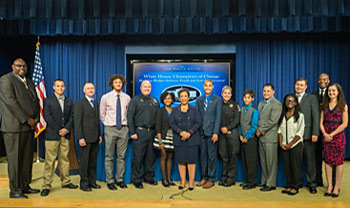
At a White House Champions of Change event on September 21, 2015, Attorney General Loretta E. Lynch (center) honored 14 champions who are working to build bridges between youth and law enforcement.
Photo credit: U.S. Department of Justice
Vice President Joe Biden, Attorney General Loretta E. Lynch, and Senior Advisor to the President Valerie Jarrett honored the leaders for building trust and improving public safety in their communities. Invited guest, Caron Butler of the Sacramento Kings, shared a message of inspiration with the honorees and other youth and officers in attendance.
Among those honored was a Milwaukee police officer and the 14-year old CEO of Girlz in Action, Inc.; an officer who became friends with a youth through a mentoring program in Hartford, CT; and a 12-year old who is collaborating with the Montgomery County (MD) Police Department to teach cadets about living with autism.
Additional “champions” are a police officer and skateboarder who launched a community skate park in Apex, NC; a youth mentor working with a police foot patrol team to conduct outreach to homeless youth in Portland, OR; the president of a high school criminal justice club and school resource officer from Bonner Springs, KS; and an officer in Grand Prairie, TX, who developed a youth boxing program and a young, nationally ranked boxer.
The event included two panel sessions, which provided an opportunity for the champions to share their success stories and highlight the value in developing community-based relationships between youth and law enforcement.
“By devoting their precious time and wide-ranging talents to the causes they champion, [the honorees] are helping to mend the fabric of trust, respect, and common purpose that all communities need to thrive," said Attorney General Lynch. "They exemplify what we have come to know: that change that can galvanize a nation often begins with a single human connection.”
During the event, the Attorney General announced a series of grants in keeping with the recommendations of the President’s Task Force on 21st Century Policing to help strengthen police and community relations. The grants include an OJJDP award to the International Association of Chiefs of Police and the Coalition for Juvenile Justice to convene a youth and law enforcement roundtable and to develop an institute for disseminating best practices on issues surrounding juvenile justice.
Resources:
Visit the White House website to watch Vice President Biden’s remarks at the Champions of Change event.
More information about OJJDP’s grant to fund the Police and Youth Engagement: Supporting the Role of Law Enforcement in Juvenile Justice Reform program is available on OJJDP’s website.

On September 28, 2015, Deputy Attorney General Sally Q. Yates and Assistant Attorney General Karol V. Mason of the Office of Justice Programs (OJP) announced five new sites in the Violence Reduction Network (VRN). The network is a comprehensive program to deliver strategic, intensive training and technical assistance in an all-hands approach to reduce violent crime in communities nationwide. The new sites are Little Rock, AR; West Memphis, AR; Compton, CA; Flint, MI; and Newark, NJ.
Launched in 2014, VRN helps communities access a broad array of U.S. Department of Justice (DOJ) resources, empowering the federal government to strengthen partnerships with local law enforcement leaders and collaboratively tackle persistent challenges caused by violent crime. The other partnering VRN cities are Oakland/Richmond, CA; Wilmington, DE; Chicago, IL; Detroit, MI; and Camden, NJ.
—Deputy Attorney General Sally Q. Yates
The announcement was made at the second annual Violence Reduction Summit, a 3-day meeting of more than 300 U.S. Attorneys, police chiefs, sheriffs, mayors, local leaders from the 10 VRN cities, and DOJ representatives. Held in Detroit, the summit featured working sessions analyzing the cities’ violence reduction challenges and discussing the variety of DOJ resources available to address the issues.
Representatives of DOJ’s federal law enforcement agencies—the Bureau of Alcohol, Tobacco, Firearms and Explosives; the Federal Bureau of Investigation; the Drug Enforcement Administration; and the United States Marshals Service—were on hand to discuss opportunities to access federal law enforcement resources.
Chyrl Jones, Deputy Administrator for Programs at OJJDP, joined other officials from DOJ—the Community Oriented Policing Services Office, the Office on Violence Against Women, and OJP’s Bureau of Justice Assistance and Office for Victims of Crime—to provide an overview of how DOJ programs, publications, and training and technical assistance can support VRN sites as they engage in violence reduction efforts.
Resources:
Learn more about the Violence Reduction Network.
For more information about OJJDP’s youth violence prevention and anti-gang initiative, visit the Office’s website.
OJJDP’s user-friendly TTA request system may also be accessed online.
On September 29–30, 2015, more than 40 state leaders, practitioners, family drug court experts, and child welfare and substance abuse treatment agency representatives gathered for an OJJDP-sponsored listening session on improving and enhancing family drug court services nationwide. The session was hosted by the American Institutes for Research in Washington, DC.
During the session, participants:
- Reviewed lessons learned and the latest findings on the effectiveness of family drug courts.
- Discussed processes for building an effective governance structure within the larger child welfare, substance abuse treatment, and judicial systems.
- Explored strategies to achieve systems change.
- Identified ways to improve practices and policies to serve families more efficiently.
In his introductory remarks, Administrator Listenbee emphasized OJJDP’s commitment to establishing new family drug court programs and expanding service delivery for existing programs. First established in Reno, NV, family drug courts address substance abuse and parenting within the child welfare system, with a focus on abuse and neglect cases in the family dependency court.
In fiscal years 2013 and 2014, OJJDP awarded nearly $8 million for family drug court implementation and enhancement, training, and technical assistance. Also, in fiscal year 2014, the Office awarded a $2.1 million grant to five states—Alabama, Colorado, Iowa, Ohio, and New York—to implement family drug court reform statewide. The states are implementing systems reform to expand the scale and scope of family drug courts—increasing the courts’ reach into child welfare and substance abuse treatment systems—and ensuring the delivery of a full range of comprehensive services for families. Children and Family Futures (CFF), provides in-depth training and technical assistance to the five awardees and to family drug courts across the nation.
“Family drug courts have made great strides since the first one was established in Reno in 1995,” said Administrator Listenbee. “Now, 309 family drug courts in 36 states serve 30,000 children annually. And, according to research, these courts achieve significantly better outcomes compared to traditional family reunification services.”
On October 10, 2015, the Justice Department announced that it was awarding grants of more than $41 million to increase the effectiveness of adult, family, and juvenile drug courts nationwide.
“These awards continue our investment in an evidence-based approach that has been shown to make a difference, both in the lives of the participants and in the safety of their communities,” said Assistant Attorney General for the Office of Justice Programs Karol V. Mason.
The competitive grant programs administered through OJJDP and the Bureau of Justice Assistance will enhance training, establish statewide performance measures, and support local partnerships among judges, treatment and school programs, law enforcement, and others.
Resources:
With support from OJJDP, CFF partnered with leading drug court organizations and practitioners to develop Guidance to States: Recommendations for Developing Family Drug Court Guidelines. The publication, released in 2013, is serving as a roadmap for states and local jurisdictions to implement evidence-based practices in family drug courts.
OJJDP has awarded 360 fiscal year 2015 grants, which total more than $266 million. The specific awards highlighted below include support for programs and services that will build bridges between youth and law enforcement, reduce recidivism among youth returning to their communities after confinement, enhance the effectiveness of juvenile and family drug courts, and improve quality data collection and effective measurement practices.
In September, U.S. Attorney General Loretta E. Lynch announced an OJJDP grant of $500,000 to fund a joint effort of the International Association of Chiefs of Police and the Coalition for Juvenile Justice to administer the Police and Youth Engagement: Supporting the Role of Law Enforcement in Juvenile Justice Reform program. The organizations will partner to convene a youth and law enforcement roundtable and develop an institute to provide TTA on innovative approaches relating to law enforcement, youth, and juvenile justice reform.
The Attorney General made the announcement during a Champions of Change event hosted by the White House on September 21.
Announced in October, the Office’s Second Chance Act awards totaling $12.3 million will—
- Shore up reentry services for Latino and Latina youth.
- Help reduce recidivism and improve outcomes for young fathers returning to their families and communities.
- Strengthen families of incarcerated parents.
- Implement reentry systems reform.
- Improve outcomes for youth under community supervision.
Funded programs include training and job placement for incarcerated or detained juveniles in technology-related jobs; training for mentors to assist pre-and postrelease; screening and assessments prerelease, and evidence-based treatment after incarceration to improve outcomes for incarcerated individuals with substance abuse and mental disorders; and assistance for jurisdictions providing reentry service to members of Native American tribes. The National Reentry Resource Center will continue to offer training and technical assistance (TTA) to the grantees.
OJJDP also announced $8.6 million in grants to juvenile and family drug courts to implement operational enhancements, increase effectiveness, promote the sharing of best practices, support systemic reform, and provide training and technical assistance. The Office awarded—
- $4 million to 10 jurisdictions in support of the Juvenile Drug Courts Addressing Systematic Barriers program. The program will help juvenile drug courts build their capacity to improve their operations and functions and to address systematic barriers.
- $2 million to the National Council of Juvenile and Family Court Judges to bring together "Juvenile Drug Court Communities of Practice" to ensure positive outcomes and treatment for youth dealing with substance abuse.
- Nearly $1.6 million to support five family drug court statewide system reform efforts based on the OJJDP-sponsored "Guidance to States: Recommendations for Developing Family Drug Court Guidelines."
- $1 million to the Family Drug Court Training and Technical Assistance program. The program supports TTA that helps states, state and local courts, units of local government, and tribal governments develop, maintain, and enhance drug courts for substance-abusing adults who are involved with the family court due to child abuse and/or neglect issues.
In addition, OJJDP is supporting approximately $9.5 million in research activities for FY2015. One area being prioritized is improving systems data. Ensuring quality data collection and effective measurement practices is critical to informing juvenile justice reform efforts and ultimately improving outcomes for youth. Major data collection and measurement awards include—
- $650,000 to the National Juvenile Court Data Archive to collect and maintain the nation's primary source of detailed information on juvenile court case processing of delinquency and status offense cases.
- $750,000 to the Design Study of Dual System Youth to identify a method to generate a national estimate of the prevalence and incidence of dual system youth, and their key characteristics.
- $500,000 to the Juvenile Justice Model Data Project to advance efforts to improve the quality and consistency of justice information, and increase the appropriate use of data in policy and practice decisions by developing model juvenile justice data elements, measures, and analyses.
- $750,000 to the Initiative to Develop Juvenile Reentry Measurement Standards to help align measurement practices across jurisdictions, and improve the assessment of juvenile reentry services’ impact on public safety and positive youth outcomes by developing, testing, and disseminating a set of practice and outcome measures.
Resources:
For more information about the Office’s fiscal year 2015 awards, visit OJJDP’s Funding webpage.
 American Society of Criminology Meeting: November 18–21, 2015
American Society of Criminology Meeting: November 18–21, 2015
The theme for the American Society of Criminology's (ASC's) 2015 meeting, to be held in Washington, DC, is “The Politics of Crime and Justice.” ASC is the largest professional criminological society in the world and includes practitioners, academicians, and students in the fields of criminal justice and criminology. More information about the meeting, including the program and registration information, is available online.
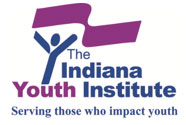 Because Kids Count Conference: November 30–December 2, 2015
Because Kids Count Conference: November 30–December 2, 2015
The Indiana Youth Institute's Because KIDS COUNT conference, to be held in Indianapolis, IN, will feature educational workshops, nationally recognized speakers, a resource tradeshow, and networking opportunities. Registration is available online.
12th Global Youth Justice Training Institute: December 1–3, 2015
Global Youth Justice will host its 12th Global Youth Justice Training Institute in Las Vegas, NV. Participants will learn strategies to establish or enhance local youth justice diversion programs through teen, student, youth, and peer courts and peer juries. Topics will include training youth and adult volunteers; providing quality community services, programs, and referrals; and conducting mock family intake meetings as well as grant writing and funding opportunities. Registration information is available online.
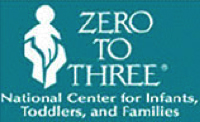 Zero to Three’s 30th National Training Institute: December 2–4, 2015
Zero to Three’s 30th National Training Institute: December 2–4, 2015
The National Training Institute, to be held in Seattle, WA, is ZERO TO THREE’s annual multidisciplinary training event for experienced early childhood professionals. The institute has been developed to meet the learning and networking needs of those working with infants and toddlers in child welfare, early childhood education, early intervention, mental health, parent education, and pediatrics. Registration information is available online.
Juvenile Diversion Certificate Program: December 15–18, 2015
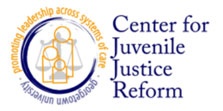 The Juvenile Diversion Certificate Program, hosted by the Center for Juvenile Justice Reform, is a 4-day program designed to enable prosecutors, law enforcement officers, probation staff, and other local leaders to strengthen and develop their diversion efforts. This intensive and interactive program will train leaders in reducing formal processing and incarceration, wasteful spending, and the collateral consequences youth encounter through exposure to the juvenile justice system. Participants will receive instruction from national experts on cutting-edge ideas, policies, and practices. More information is available online.
The Juvenile Diversion Certificate Program, hosted by the Center for Juvenile Justice Reform, is a 4-day program designed to enable prosecutors, law enforcement officers, probation staff, and other local leaders to strengthen and develop their diversion efforts. This intensive and interactive program will train leaders in reducing formal processing and incarceration, wasteful spending, and the collateral consequences youth encounter through exposure to the juvenile justice system. Participants will receive instruction from national experts on cutting-edge ideas, policies, and practices. More information is available online.
30th Annual San Diego International Conference on Child and Family Maltreatment: January 25–28, 2016
The objective of the San Diego International Conference is to develop and enhance professional skills and knowledge in the prevention, recognition, assessment, and treatment of all forms of child and family maltreatment as well as to enhance investigative and legal skills. Topics include mental health and trauma, forensic interviewing, investigations, research, child welfare, domestic violence, and global issues and perspectives. Registration information is available online.
 National Mentoring Summit: January 27–29, 2016
National Mentoring Summit: January 27–29, 2016
This annual event, to be held in Washington, DC, will bring together practitioners, researchers, corporate partners, government and civic leaders, national youth-serving organizations and the network of affiliate Mentoring Partnerships to explore and advance mentoring’s positive impact on individuals and communities. The theme for this year’s summit is "Connection, Growth, Opportunity." Registration information is available online.
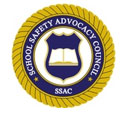 National Conference on Bullying and Child Victimization: February 22–24, 2016
National Conference on Bullying and Child Victimization: February 22–24, 2016
Hosted by the School Safety Advocacy Council, the 2016 national conference will focus on protecting children using proven best practices and innovative localized programs and efforts. The conference brings together keynote presenters into one forum to provide professional development. More information is available online.
Society for Research on Adolescence Biennial Meeting: March 31–April 2, 2016
The Society for Research on Adolescence will hold its biennial meeting in Baltimore, MD, this spring. Persons with an interest in any aspect of research on adolescence are encouraged to join. National Institute of Justice Director Nancy Rodriguez will deliver the keynote speech. Registration information is available online.
32nd International Symposium on Child Abuse: April 4–7, 2016
 The National Children’s Advocacy Center will host its 32nd International Symposium on Child Abuse in Huntsville, AL. This conference will offer more than 130 workshops. Sessions will address topics such as physical abuse, sexual abuse, neglect, exposure to violence, polyvictimization, exploitation, intervention, trafficking, and prevention. More information about the symposium is available online.
The National Children’s Advocacy Center will host its 32nd International Symposium on Child Abuse in Huntsville, AL. This conference will offer more than 130 workshops. Sessions will address topics such as physical abuse, sexual abuse, neglect, exposure to violence, polyvictimization, exploitation, intervention, trafficking, and prevention. More information about the symposium is available online.
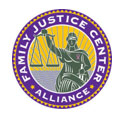 16th Annual International Family Justice Conference: April 12–14, 2016
16th Annual International Family Justice Conference: April 12–14, 2016
The Family Justice Center Alliance will host its annual conference in San Diego, CA. This event includes training and interactive peer-to-peer discussions on issues related to the handling of domestic violence, child abuse, sexual assault, elder abuse, and stalking cases with special focus on law enforcement response, criminal prosecution, civil legal assistance, and advocacy. The Alliance welcomes law enforcement personnel, prosecutors, shelter staff, community-based victim advocates, and all others interested in the future of family violence intervention and prevention. More information about this conference is available online.

Robert L. Listenbee delivers the keynote address at the Council of Juvenile Correctional Administrators’ 2015 Leadership Institute. More than 50 juvenile correctional administrators and chief executive officers attended the institute.
Photo: ©David T. Kindler
OJJDP Administrator Addresses Leadership Institute, Receives Award
"The future of our nation depends upon future generations being involved and contributing to the public welfare. Positive youth development gives us a vision for reaching that goal,” said Administrator Listenbee speaking at the Council of Juvenile Correctional Administrators’ (CJCA) annual Leadership Institute. Sponsored by the Annie E. Casey Foundation, the institute took place on October 14–16, 2015, in Chicago, IL. Statewide juvenile facilities managers from more than 40 states were in attendance.Mr. Listenbee provided the keynote address during which he discussed OJJDP’s efforts to promote positive youth development, the focus of this year’s institute. He also participated in a Q & A session and moderated a panel on “Supporting the Prosocial Development of Youth/Positive Youth Outcomes.”
On the final day of the institute, Administrator Listenbee was honored with a CJCA Leadership Award in recognition for “leadership and dedication to reforming juvenile justice systems across the country.”
CJCA plans to create a toolkit based on the ideas and recommendations participants shared at the institute. The toolkit will guide members in their efforts to increase positive youth development in their jurisdictions.
Administrator Listenbee Discusses Commercial Sexual Exploitation and Trafficking of Minors in Police Chief Article
 How can law enforcement officers work best with children and adolescent victims of commercial sexual exploitation and trafficking? Administrator Listenbee explores this question in “Confronting Commercial Sexual Exploitation and Trafficking of Minors in Juvenile Justice,” an article published in the October 2015 issue of The Police Chief magazine.
How can law enforcement officers work best with children and adolescent victims of commercial sexual exploitation and trafficking? Administrator Listenbee explores this question in “Confronting Commercial Sexual Exploitation and Trafficking of Minors in Juvenile Justice,” an article published in the October 2015 issue of The Police Chief magazine.
According to OJJDP-funded research carried out by the National Academy of Sciences’ Institute of Medicine and National Research Council, law enforcement officers often have trouble recognizing and responding appropriately to child victims of commercial sexual exploitation and trafficking. Responses to child victims of commercial sexual exploitation and trafficking should be trauma informed and evidence based, writes Listenbee, and OJJDP is working with federal, state, and local governments—as well as law enforcement—to address challenges to working with this vulnerable population.
OJJDP staff members—Jennifer Tyson, Jeffrey Gersh, Jacqueline O’Reilly, and Catherine Pierce—contributed to the article, which is now available.
OJJDP Research To Be Highlighted at American Society of Criminology Meeting
The American Society of Criminology (ASC) with host its 71st annual meeting on November 18–21, 2015, in Washington, D.C. Seventeen sessions at the event will feature OJJDP-supported projects. Attend the sessions to learn about the latest research on topics, such as the developmental pathways to delinquency and drug use, juveniles in residential placement, juvenile drug court programs, violence among at-risk youth, commercial sexual exploitation of children, youth gangs, gun violence, and indigent defense.
To register for this year’s ASC meeting and access program information, visit the ASC website.
OJJDP Hosts National Missing Children’s Day Poster Exhibit
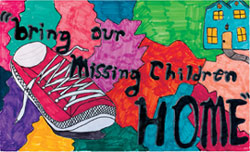
Artwork by Sydney Kekel of Grand Blanc, MI, 2015 Poster Contest Winner.
With an annual theme of "Bringing Our Missing Children Home," the poster contest provides teachers with tools to educate children and parents about safety and initiate conversations regarding prevention.
“The best part for us is seeing the creative, inspired work of these children, which we are proud to share with you today,” said James Antal, OJJDP’s Acting Associate Administrator of the Youth Development, Prevention, and Safety Division.
Youth Crime and Violence Prevention Knowledge Exchange Held in Baltimore, MD
On October 6–7, 2015, the World Bank, the City of Baltimore, and the National Forum on Youth Violence Prevention's Forum Coordination Team hosted a Youth Crime and Violence Prevention Knowledge Exchange in Baltimore, MD. Organized by OJJDP, the event was designed to foster the exchange of successful strategies for addressing youth violence and creating safe environments for young people to grow and thrive. The event brought together federal and city officials, community and faith-based organizations, and more than 35 World Bank officials. Representatives from the government of Jamaica were also in attendance.
The delegation listened to city officials and community leaders speak about the challenges and successes encountered while working to address youth violence and crime and toured community action programs in Upton/Druid Heights and McElderry Park. Theron Pride, Chief of Staff at the Office of Justice Programs, and OJJDP Administrator Robert Listenbee provided remarks and shared information about federal youth violence prevention initiatives, such as the National Forum on Youth Violence Prevention, the Defending Childhood and My Brother’s Keeper initiatives, and the Community-Based Violence Prevention Demonstration program.
Baltimore is 1 of 15 city participants in the National Forum on Youth Violence Prevention.
October Is National Bullying Prevention Month
 Every October, communities across the nation observe National Bullying Prevention Month by organizing events to raise awareness about the prevalence of bullying and its impact on youth. OJJDP is a member of the Federal Partners in Bullying Prevention, an interagency effort led by the U.S. Department of Education that works to coordinate policy, research, and communications on bullying topics.
Every October, communities across the nation observe National Bullying Prevention Month by organizing events to raise awareness about the prevalence of bullying and its impact on youth. OJJDP is a member of the Federal Partners in Bullying Prevention, an interagency effort led by the U.S. Department of Education that works to coordinate policy, research, and communications on bullying topics.
For more information on how parents, educators, and youth can work together to stop bullying, visit StopBullying.gov. To learn more about the scope of the problem, predictors of bullying, laws against bullying, and evidence-based programs to prevent and intervene in bullying, see OJJDP's Model Programs Guide.
See also the OJJDP-supported tipcard, "Preparing and Responding to Cyberbullying: Tips for Law Enforcement," produced by the International Association of Chiefs of Police and the National Center for Missing & Exploited Children. The tipcard provides more than 20 recommendations to help law enforcement address and investigate cyberbullying in their communities.
All OJJDP publications may be viewed and downloaded on the publications section of the OJJDP website. Print publications may be ordered online at the National Criminal Justice Reference Service website.
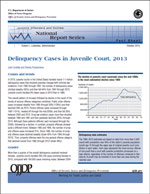
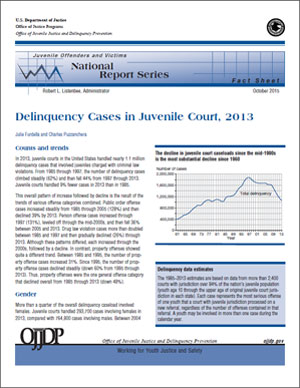 Delinquency Cases in Juvenile Court, 2013
Delinquency Cases in Juvenile Court, 2013
NCJ 248899
National Report Series
This fact sheet presents statistics on delinquency cases handled in U.S. juvenile courts between 1985 and 2013. Estimates are based on data from more than 2,400 juvenile courts with jurisdiction over 84 percent of the U.S. juvenile population. In 2013, juvenile courts handled nearly 1.1 million delinquency cases involving juveniles charged with criminal law violations. Data on public order, person, and property offenses and drug law violations by age, gender, and race are included as well as rates of dismissal, detention, waivers to criminal court, and adjudication and disposition.
View and download this fact sheet.
Child Forensic Interviewing: Best Practices

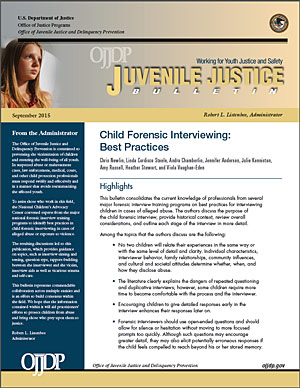 NCJ 248749
NCJ 248749
This bulletin consolidates the current knowledge of professionals from several major forensic interview training programs on best practices for interviewing children in cases of alleged abuse. The authors discuss the purpose of the child forensic interview, provide historical context, review overall considerations, and outline each stage of the interview in detail. The publication provides guidance on topics such as interview timing and setting, question type, rapport-building between the interviewer and the victim, interview aids as well as vicarious trauma and self-care.
View and download this bulletin.
Children’s Exposure to Violence, Crime, and Abuse: An Update
NCJ 248547
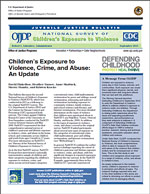
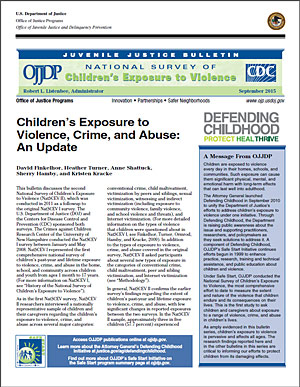
National Survey of Children’s Exposure to Violence Series
This bulletin discusses the second National Survey of Children’s Exposure to Violence (NatSCEV II), conducted in 2011 as a followup to the original NatSCEV I survey conducted in 2008. OJJDP and the Centers for Disease Control and Prevention sponsored both surveys. The NatSCEV II survey confirmed NatSCEV I’s finding that children’s exposure to violence is common; nearly 60 percent of the sample (57.7 percent) had been exposed to violence in the past year, and more than 1 in 10 reported 5 or more exposures. This exposure occurs across all age ranges of childhood and for both genders.
View and download this bulletin.
Beyond Detention Series
The following bulletins from the Office's Beyond Detention series present findings from the OJJDP-sponsored Northwestern Juvenile Project—a longitudinal study of youth detained at the Cook County Juvenile Temporary Detention Center in Chicago, IL.

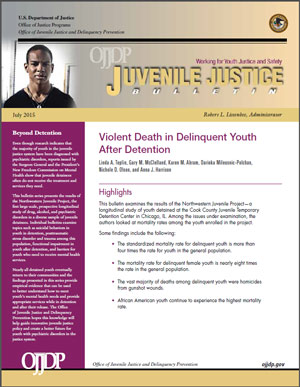 Violent Death in Delinquent Youth After Detention
Violent Death in Delinquent Youth After Detention
NCJ 248408The authors looked at mortality rates among the youth enrolled in the project. Among their findings: The standardized mortality rate for delinquent youth is more than four times the rate for youth in the general population. More specifically, the mortality rate for delinquent female youth is nearly eight times the rate in the general population, African American youth experience the highest mortality rate, and the vast majority of deaths among delinquent youth were homicides from gunshot wounds.
View and download this bulletin.

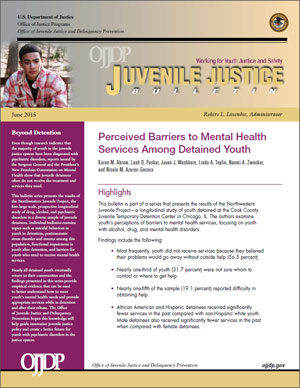 Perceived Barriers to Mental Health Services Among Detained Youth
Perceived Barriers to Mental Health Services Among Detained Youth
NCJ 248522The authors examined youth’s perceptions of barriers to mental health services, focusing on youth with alcohol, drug, and mental health disorders. Among their findings: Most frequently, youth did not receive services because they believed their problems would go away without outside help (56.5 percent); nearly one-third of youth (31.7 percent) were not sure whom to contact or where to get help; and nearly one-fifth of the sample (19.1 percent) reported difficulty in obtaining help.
View and download this bulletin.
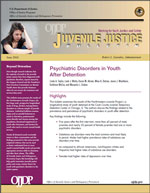
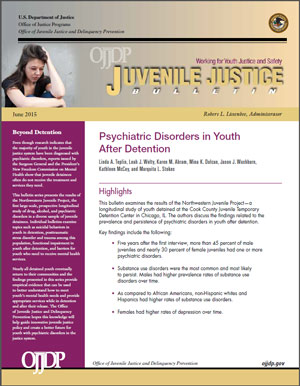 Psychiatric Disorders in Youth After Detention
Psychiatric Disorders in Youth After Detention
NCJ 246824The authors discuss findings related to the prevalence and persistence of psychiatric disorders in youth after detention. Five years after the first interview, more than 45 percent of male juveniles and nearly 30 percent of female juveniles had one or more psychiatric disorders. Substance use disorders were the most common and most likely to persist. As compared to African Americans, non-Hispanic whites and Hispanics had higher rates of substance use disorders. Females had higher rates of depression over time.
View and download this bulletin.
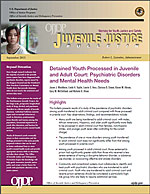
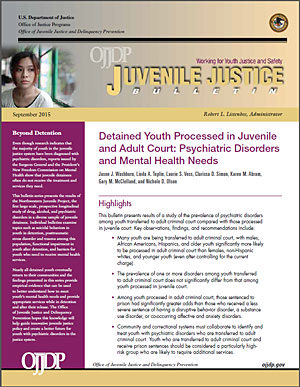 Detained Youth Processed in Juvenile and Adult Court: Psychiatric Disorders and Mental Health Needs
Detained Youth Processed in Juvenile and Adult Court: Psychiatric Disorders and Mental Health Needs
NCJ 248283The authors examined the prevalence of psychiatric disorders among youth transferred to adult criminal court compared with those processed in juvenile court. Findings indicate that many youth are being transferred to adult criminal court, with males, African Americans, Hispanics, and older youth significantly more likely to be processed in adult criminal court than females, non-Hispanic whites, and younger youth. Among youth processed in adult criminal court, those sentenced to prison had significantly greater odds than those who received a less severe sentence of having a disruptive behavior disorder, a substance use disorder, or co-occurring affective and anxiety disorders.
View and download this bulletin.
Now Available in e-Book Format—
Created as part of the Justice Department’s Defending Childhood Initiative, this report presents the Advisory Committee's policy recommendations on the current epidemic of violence and suggestions for preventing violence and alleviating its impact on American Indian and Alaska Native children.
Download this and other OJJDP e-books.
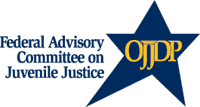
The Federal Advisory Committee on Juvenile Justice (FACJJ) held an in-person meeting on October 19–20, 2015. Jim Moeser, Acting Chair, presided.
The committee presented its 2015 recommendations to Administrator Listenbee. They covered three primary areas of concern:
- Expungement, sealing, and confidentiality of records
- Research and publications
- Legislation
Administrator Listenbee thanked FACJJ members for their recommendations and assured the committee that OJJDP would map out ways of incorporating them into its future work, as it has historically done with previous recommendations.
FACJJ also welcomed four new primary members:
- Aileen Artero (Guam)
- Judge Vernon C.R. Daniels (Nebraska)
- Judge Amy Davenport (Vermont)
- Dr. Justin “Jay” Miller (Kentucky)
Lisa Jacobs (Illinois), a new alternate member attended. Two other alternate members were selected but did not attend. They are:
- Timothy M. Brurud (Montana)
- Dr. Gregory A. Parks (Oklahoma)
Minutes of the meeting will be available on the Federal Advisory Committee on Juvenile Justice website in the coming weeks.
FACJJ meetings are open to the public; anyone may register to attend and observe.
